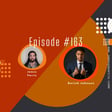
Turning Struggles into Success: Jason Roberts on Building a Business Empire and Mastering Entrepreneurial Resilience
What does it truly take to turn your life around and build a successful business against all odds? Get ready to uncover the inspiring story of Jason Roberts, who transitioned from a tough upbringing in Troy, Missouri, to becoming a thriving entrepreneur. Jason opens up about his early days working at a collection agency and the crucial decision to leave behind security to launch his own mortgage company at just 21. His narrative is packed with insights on balancing business success with personal freedom and the relentless perseverance required to get there.
Learn the essential lessons Jason picked up along his journey, from mastering debt management to the art of providing immense value in business relationships. With a no-holds-barred approach, Jason discusses living frugally to save for his startup, the strategic decisions that spurred his business growth, and innovative networking techniques that build lasting and dignified partnerships. His story offers a treasure trove of actionable wisdom, especially for those navigating the complex waters of entrepreneurship.
As we walk through the rapid scaling of Jason's venture, you'll hear about his unique hiring and firing philosophies, optimizing staff management, and the importance of mentorship. Jason's personal anecdotes, including his fearless approach to learning new skills like helicopter flying, illustrate the powerful lesson that real growth often lies just beyond our comfort zones. Tune in for an episode rich in practical advice, motivational stories, and invaluable takeaways designed to inspire and empower aspiring entrepreneurs.
















